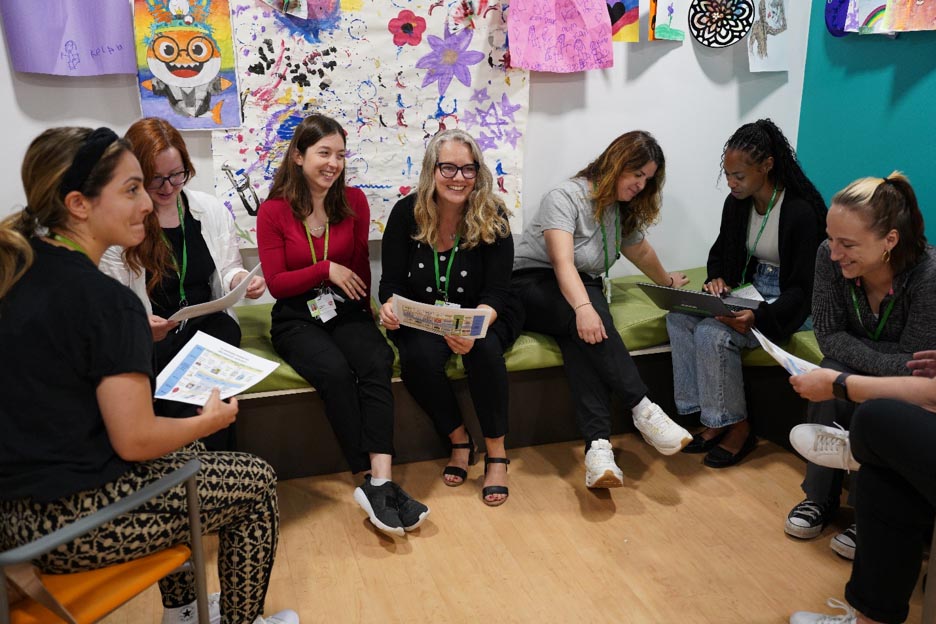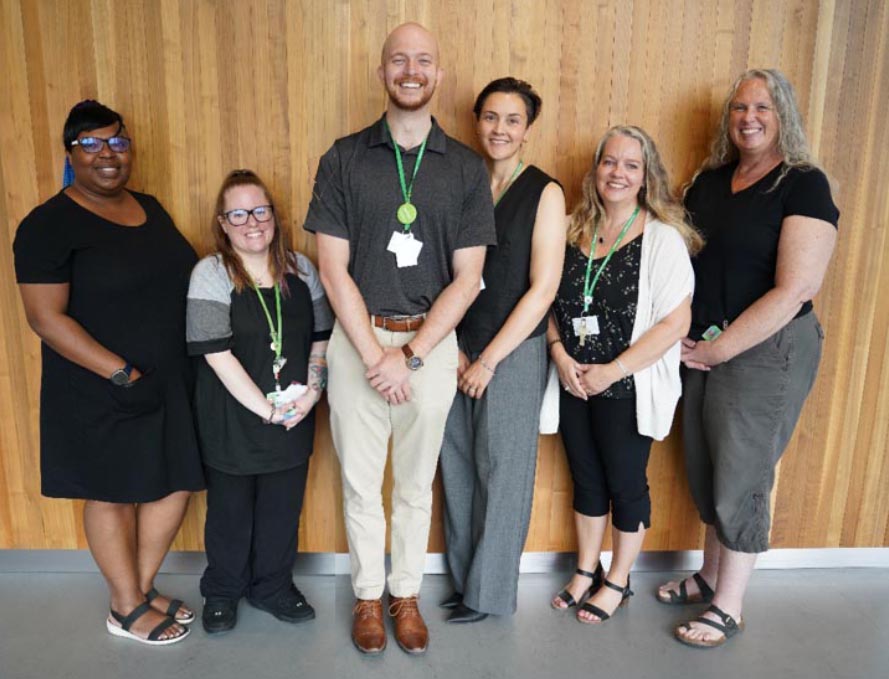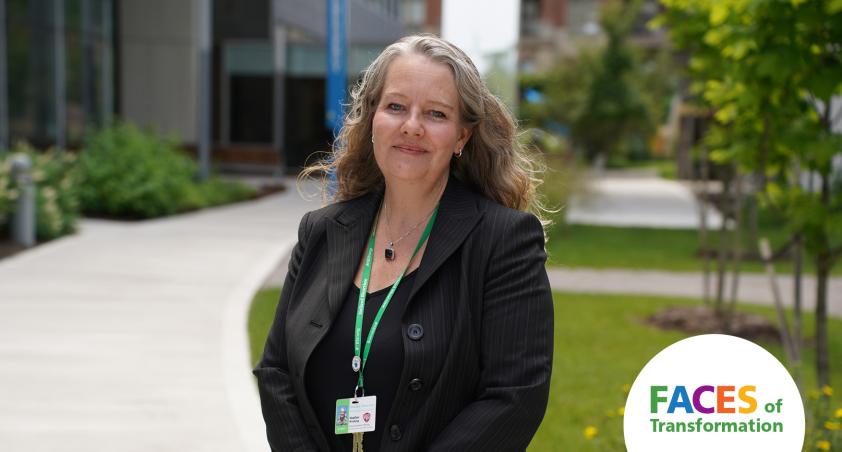Heather Keating shares valuable insights into the essential support provided to clients navigating complexities of transitions to adulthood.
For over 25 years, Heather Keating has been an integral part of Holland Bloorview, starting as an intern on student placement and eventually transitioning into multiple fulfilling full-time roles. Initially working as a therapeutic recreation specialist with the inpatient clients, later moving to the day program and eventually moving into working with community programs as a life skills facilitator. Her commitment to new initiatives led her into leadership roles, first as team lead and now as the clinical operations manager, overseeing transitions, community partnerships, community life skills and the LIFEspan clinic.
In a recent conversation, Heather discusses the impactful work that the team has accomplished over the years, highlighting key initiatives designed to support clients, and their families, through transitions to adulthood.
Can you describe the transitions team and the work they are doing?

The transitions services I support are the community life skills team and the LIFEspan clinic. Both teams collaborate to help clients with meaningful, fulfilling as well as safe and supported transitions into adulthood. The community life skills team provides individualized coaching and goal-based groups for clients aged 7 to 18 years and up to 21, if still in high school. We also provide residential immersive life skills through our flagship program, The Independence Program (TIP), which has served over 325 clients since 1992. The LIFEspan clinic team has supported clients with transitions since 2008. They offer continuous care through a partnership between pediatric and adult rehab.
Our transitions work also includes employment pathways, post secondary school supports, friendships and belonging, adapted recreation, as well as transitions pop-ups/supports.
What are some of the key initiatives that the team is currently working on?
Continuing to develop and establish partnerships with external community partners to offer agile care and build community capacity so that clients have access to the supports they need in their own communities.
Another key initiative is the role out of the sociodemographic data collection, as part of our commitment to provide socially accountable care. Social needs screening also continues to be incorporated into our first point of entry for our community life skills services.
Why is this work so important to the clients and families?
Clients and families deserve to have the same opportunities to work towards their goals and participate in their communities, whether that means living independently/ interdependently, building social connections, obtaining meaningful work, volunteering or participating in activities that bring them joy.
Can you share a success story or an example of the impact this work has had on a client's life?
A significant part of our services is providing opportunities for connection whether this is friendship or building relationships. A few years ago, two youths met in The Independence Program (TIP), started dating, later married and began a family of their own. After learning to navigate transit independently they chose to venture home independently on the last day of the program, later on the way home, I actually saw them departing the transit system together. Seeing them smiling and so happy, just filled my heart with joy and I thought to myself, “this is the real deal and why we do what we do.”
Can you share a personal experience that has particularly inspired you in your role and what inspires you to do the work that you do?
Several years ago, a former client I worked with unexpectedly stopped by after years of leaving the hospital. Reception called me down and in front of me sat a young man in his mid-30’s, and to be honest I didn’t recognize him at first. Finally realizing who he was, he expressed his gratitude for the support he received during his admission many years ago and sharing that the impact of therapeutic recreation was significant and normalized a very challenging time in his life. This feedback was significant.
Supporting the team to provide these unique and powerful real-world experiences beyond the hospital walls inspires me. I have had the opportunity over the many years working in this service to see many clients grow and develop and see many now actively engaged in their communities.
Reflections from team members

"We use a multidisciplinary team approach to meet the medical and non-medical needs of our clients and families during their transition to adulthood. We understand how stressful this transition can be and use best practices in a one-stop-shop approach. We introduce transition topics early and at each appointment. We encourage all staff to do the same to ensure our clients and families feel supported holistically.” - LIFEspan team
“As clinicians we love to see our clients move through our different programs as they grow and develop their skills. Many of our clients start out having never participated in a life skills or recreation-based program. Watching them go from participating in a 1-2 hour program to strengthening their independence in a three-week overnight program is truly remarkable, and often life changing” - Michelle Halliday, therapeutic recreation specialist (TRS)
“The independence program is impactful in the moment but it’s also so amazing when we hear from clients months, or even years later. They will sometimes reach out with pictures or stories about meals they independently cooked for their family, or that they are managing their own money. It’s great for us as clinicians to know our programs continue to make a difference well into their futures” - Steph DiMartino, life skills coach (LSC)
For more information about the transitions programs please visit our website.
